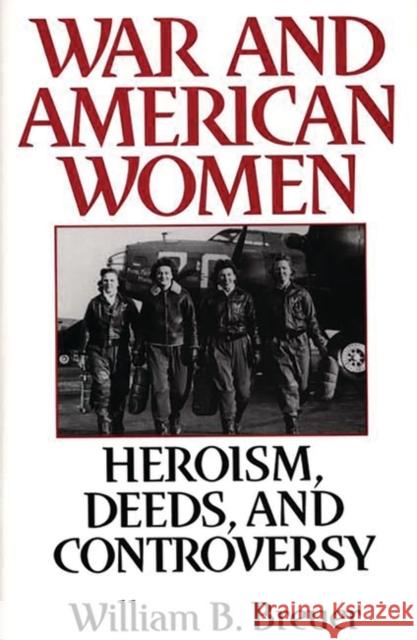War and American Women: Heroism, Deeds, and Controversy » książka
War and American Women: Heroism, Deeds, and Controversy
ISBN-13: 9780275957179 / Angielski / Twarda / 1997 / 280 str.
American women have had a sterling tradition of courage, sacrifice, and dedication in support roles in the armed services in times of war, and as spies, guerrilla leaders, and frontline correspondents. Most of their heroics and deeds have largely gone unreported, even though many have been killed in the line of duty, died of diseases or accidents, or suffered as prisoners of war. DEGREESL DEGREESL Focusing on human drama, this riveting book tells vividly of women's achievements in uniform going back to World War I. It also relates in compelling style the heated controversy over sending women into combat, a dispute that contributed to the suicide of Admiral Jeremy Boorda in 1996.The Gulf War of 1991 saw 37,000 women serve in uniform who, like their predecessors, performed admirably and demonstrated courage under fire. This war and the subsequent Tailhook scandal renewed the call by feminist groups and their supporters in Congress to have the military remove, once and for all, the restrictions barring women from direct combat. While some saw this struggle as a quest for equality and opportunity in uniform, others fought just as vigorously to keep women out of combat. The 1990s saw women assigned to ships, to aircraft, and to jobs previously denied them due to an easing of the long-standing combat restrictions. This resulted in a nationwide debate which, many allege, contributed to the suicide of Admiral Jeremy Boorda in 1996. DEGREESL DEGREESL Allowing women to serve in the military during wartime has been a subject of controversy since World War I, when, for the first time in history, thousands answered the same patriotic call to duty as the men and volunteered. Unlike the men, however, these pioneers were targets of gossip and branded as camp followers by some. Since that time, some 3.5 million American women have served their country as spies, nurses, guerrillas, or war correspondents. Many of these volunteers were wounded or died in the line of duty, others suffered as prisoners of war--all with little or no recognition.During World War II, the military actively recruited women to fill support roles in an effort to free more able-bodied men for combat duty. This resulted in the creation of women's branches of the armed services, which enabled women to take on even greater challenges and more diversified roles than previously allowed. These new organizations included: DEGREESL WAACs--later WACs (Army) DEGREESL WAVEs (Navy) DEGREESL SPARs (Coast Guard) DEGREESL Marine Corps Women's Reserve DEGREESL WASPs (ferrying airplanes) DEGREESL These groups attracted more than 350,000 volunteers. The tradition of volunteering continued on through conflicts in Korea and Vietnam, and each time, American women met their challenges with honor and distinction. DEGREESL DEGREESL DEGREESIWar and American Women DEGREESR brings to life the compelling story of the ordinary and extraordinary women who served their country in times of war. Their largely unreported and unacknowledged acts of heroism are vividly recounted by an author whose style has been described by DEGREESI











